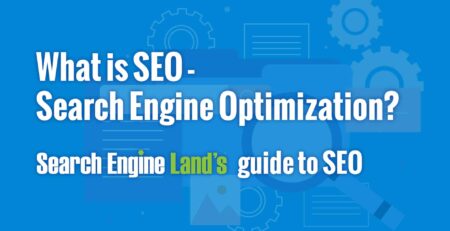
Mastering SEO Marketing: A Comprehensive Guide for Success
In the rapidly evolving digital landscape, Search Engine Optimization (SEO) has become a crucial component of any successful marketing strategy. With millions of websites vying for attention, businesses must employ effective SEO techniques to increase their online visibility, drive organic traffic, and ultimately achieve higher conversions. In this article, we will delve into the world of SEO marketing, exploring the key concepts, best practices, and innovative strategies to help you optimize your website and achieve sustainable growth.
- Understanding SEO Marketing: The Basics
- a) What is SEO Marketing?
SEO marketing refers to the practice of optimizing a website’s content and structure to improve its visibility and rankings on search engine results pages (SERPs). By aligning with search engine algorithms, businesses can attract targeted organic traffic, enhance user experience, and increase their online presence. - b) Why is SEO Marketing Important?
With the majority of online experiences starting with a search engine query, ranking higher on SERPs becomes critical. SEO marketing helps businesses gain visibility, establish authority, and increase brand awareness. Higher rankings lead to more clicks, increased traffic, and ultimately, improved conversion rates and revenue. - Essential Components of SEO Marketing
- a) Keyword Research and Optimization
Effective keyword research is the cornerstone of successful SEO marketing. Identifying relevant keywords and incorporating them strategically throughout your website’s content, meta tags, headings, and URLs helps search engines understand your content’s context and relevance. - b) On-Page Optimization
On-page optimization involves optimizing individual web pages to improve their visibility and rankings. This includes optimizing meta tags, headings (H1, H2, H3), URLs, image alt tags, and ensuring keyword-rich, engaging content. - c) Off-Page Optimization
Off-page optimization focuses on improving a website’s authority and reputation through external factors. This includes building high-quality backlinks, social media signals, and online mentions from reputable sources. Off-page optimization helps search engines determine a website’s credibility and relevance.
III. Best Practices for Effective SEO Marketing
- a) Creating High-Quality Content
Compelling, informative, and engaging content is key to attracting and retaining visitors. By producing valuable content that answers user queries, addresses pain points, and offers unique insights, businesses can enhance user experience and encourage sharing and linking, thus improving their rankings. - b) Mobile-Friendly Optimization
With the increasing use of mobile devices, search engines prioritize mobile-friendly websites. Ensuring responsive design, fast loading times, and intuitive user experience on mobile devices can significantly impact rankings and user satisfaction. - c) User Experience and Technical SEO
A seamless user experience is vital for both visitors and search engines. Optimizing website navigation, improving site speed, implementing structured data, and eliminating technical issues such as broken links or duplicate content can enhance user experience and improve search engine rankings. - d) Local SEO
For businesses targeting local customers, local SEO plays a vital role. Optimizing business listings, creating location-specific content, and leveraging customer reviews can help businesses rank higher in local search results and attract customers from their target geographic areas. - Advanced SEO Strategies
- a) Voice Search Optimization
As voice assistants and smart devices gain popularity, optimizing content for voice search queries becomes crucial. Focusing on long-tail keywords, using natural language, and structuring content to answer specific questions can help businesses capture voice search traffic. - b) Featured Snippets and Schema Markup
Featured snippets provide concise answers to user queries on SERPs, offering businesses an opportunity to drive targeted traffic. Implementing schema markup, structured data, and providing well-structured content can increase the chances of earning featured snippets and enhancing visibility. - Monitoring and Analytics
- a) Tracking and Measuring SEO Performance
Regularly monitoring and analyzing SEO performance is crucial for optimizing strategies. Utilizing tools like Google Analytics and Google Search Console can provide valuable insights into website traffic, rankings, user behavior, and keyword performance. - b) A/B Testing and Experimentation
Conducting A/B tests and experiments helps businesses identify what works best for their audience. Testing different keywords, headlines, meta descriptions, and content formats can provide actionable data to refine and improve SEO marketing efforts.
Conclusion:
In today’s digital landscape, SEO marketing is essential for businesses to achieve online success. By understanding the fundamental concepts, implementing best practices, and adopting innovative strategies, businesses can optimize their websites for search engines, attract targeted traffic, and establish a competitive edge. With continuous monitoring, adaptation, and a commitment to delivering valuable content and user experience, businesses can thrive in the ever-evolving world of SEO marketing.
Related Posts
 Seo
Seo
The Benefits of SEO Packages for Your Business
In today’s digital age, having a strong online presence is essential for any business that wants to succeed. Search Engine... Seo
Seo
Understanding the Benefits of SEO: Why It’s Important for Your Business
Search Engine Optimization, or SEO, is an essential digital marketing strategy that helps businesses increase their visibility and attract more... Seo
Seo